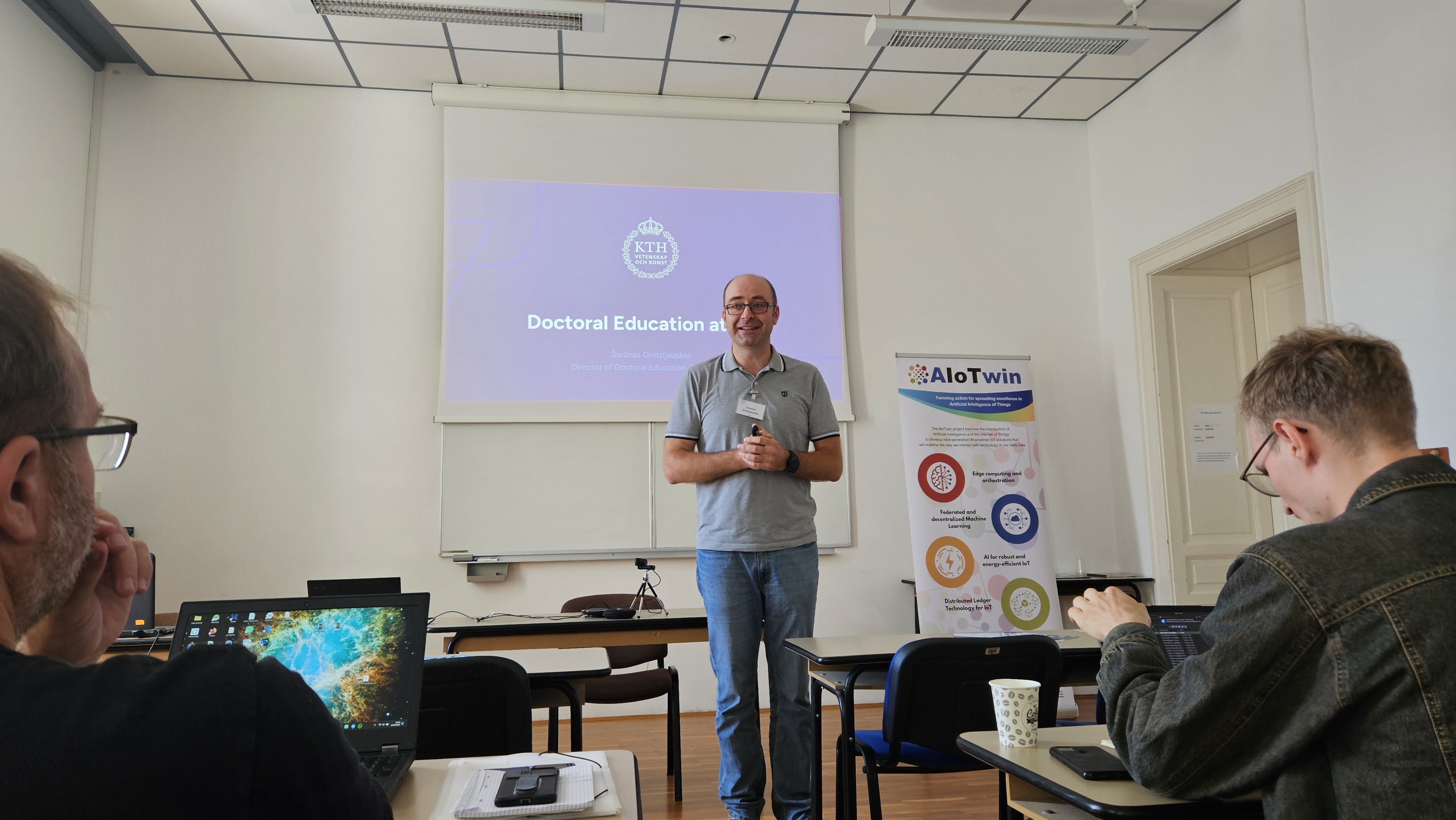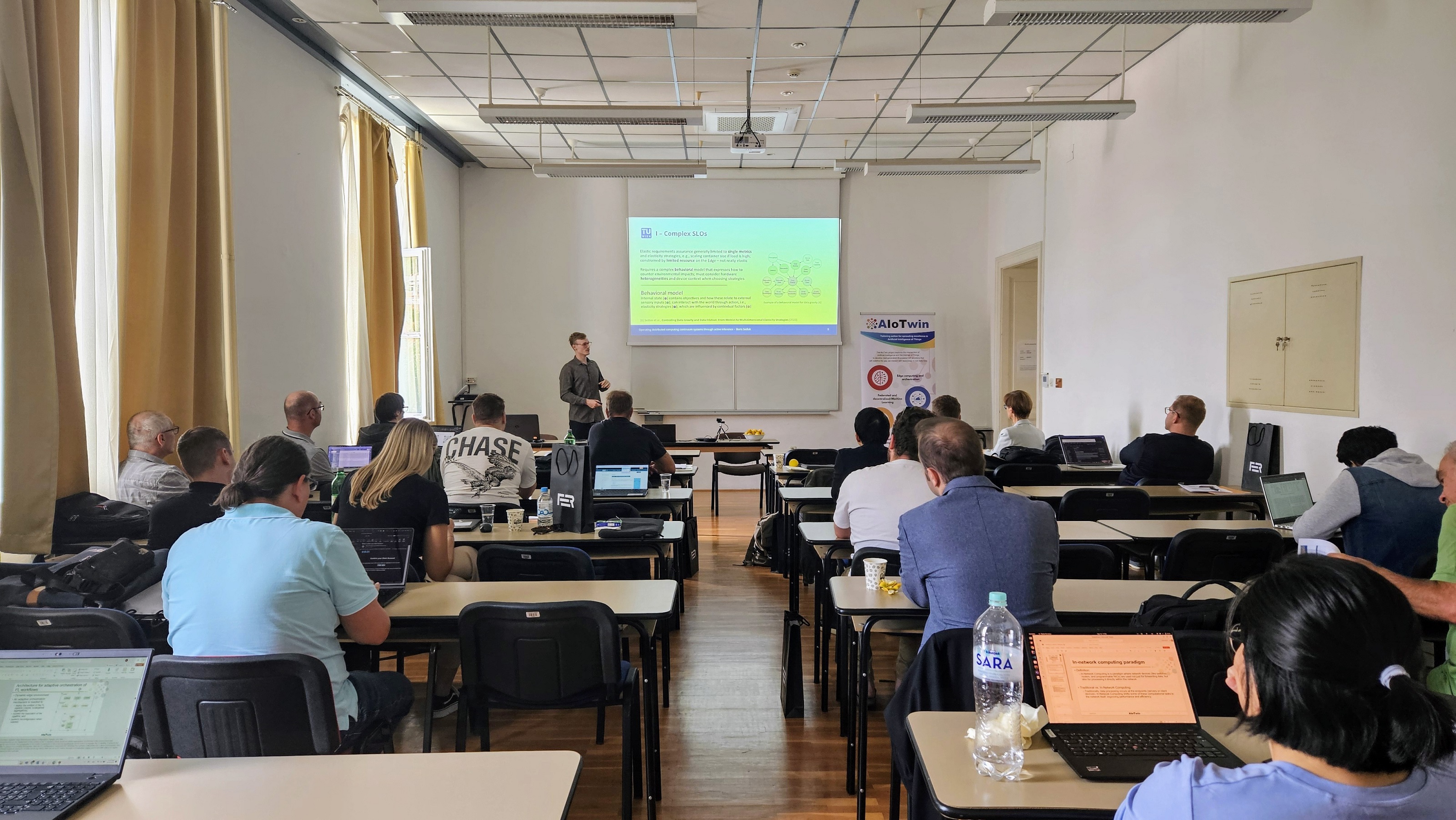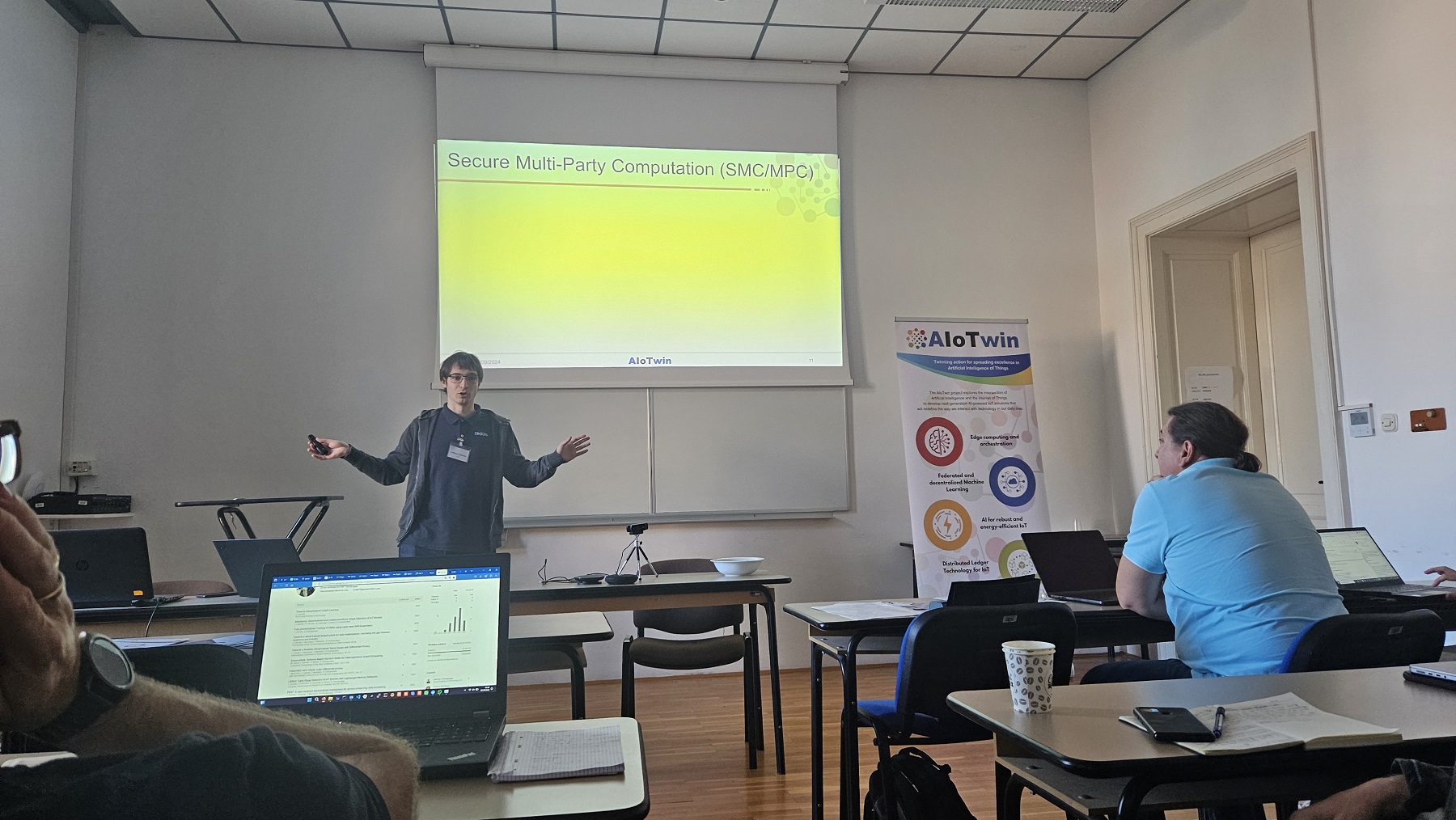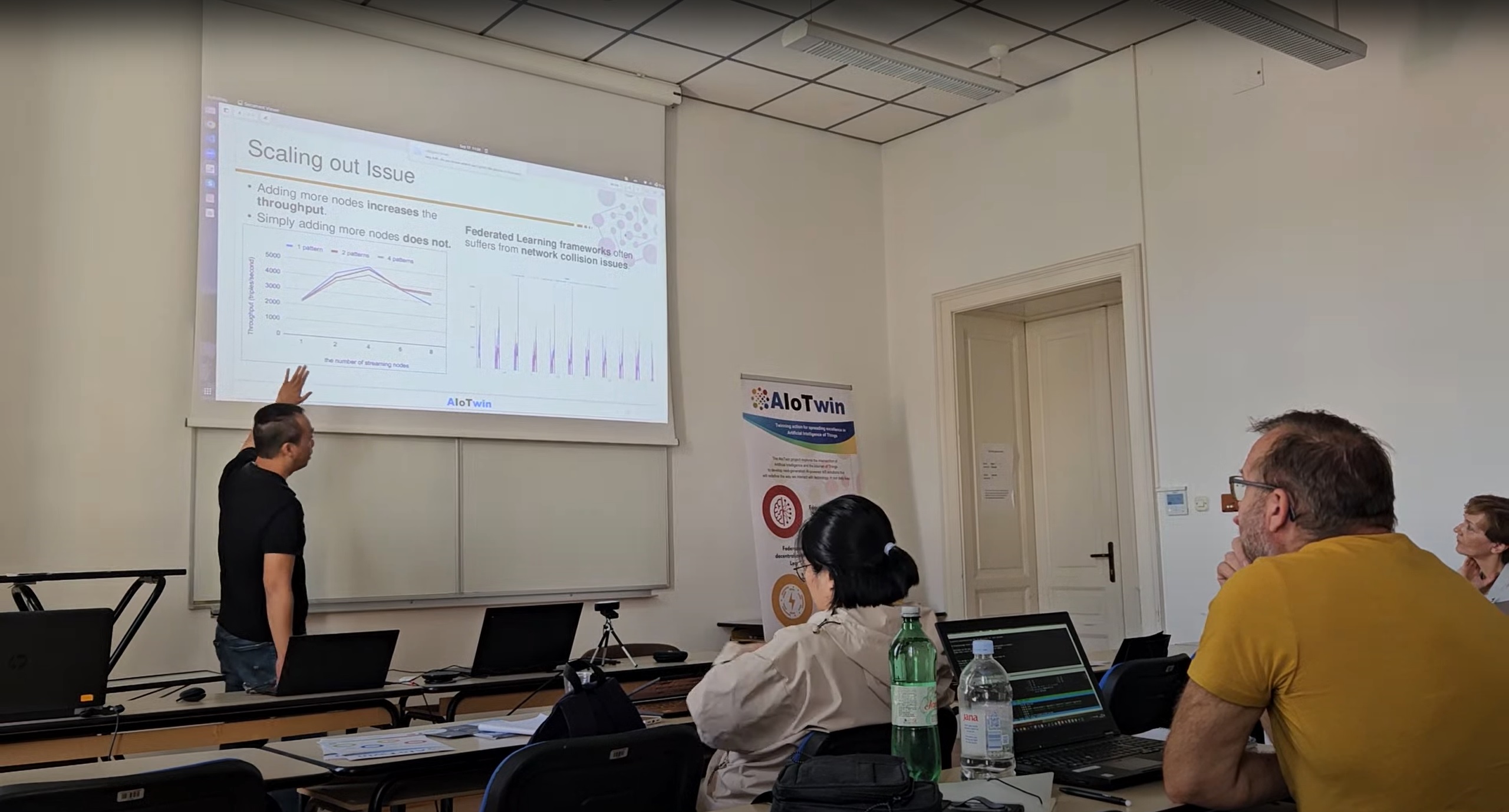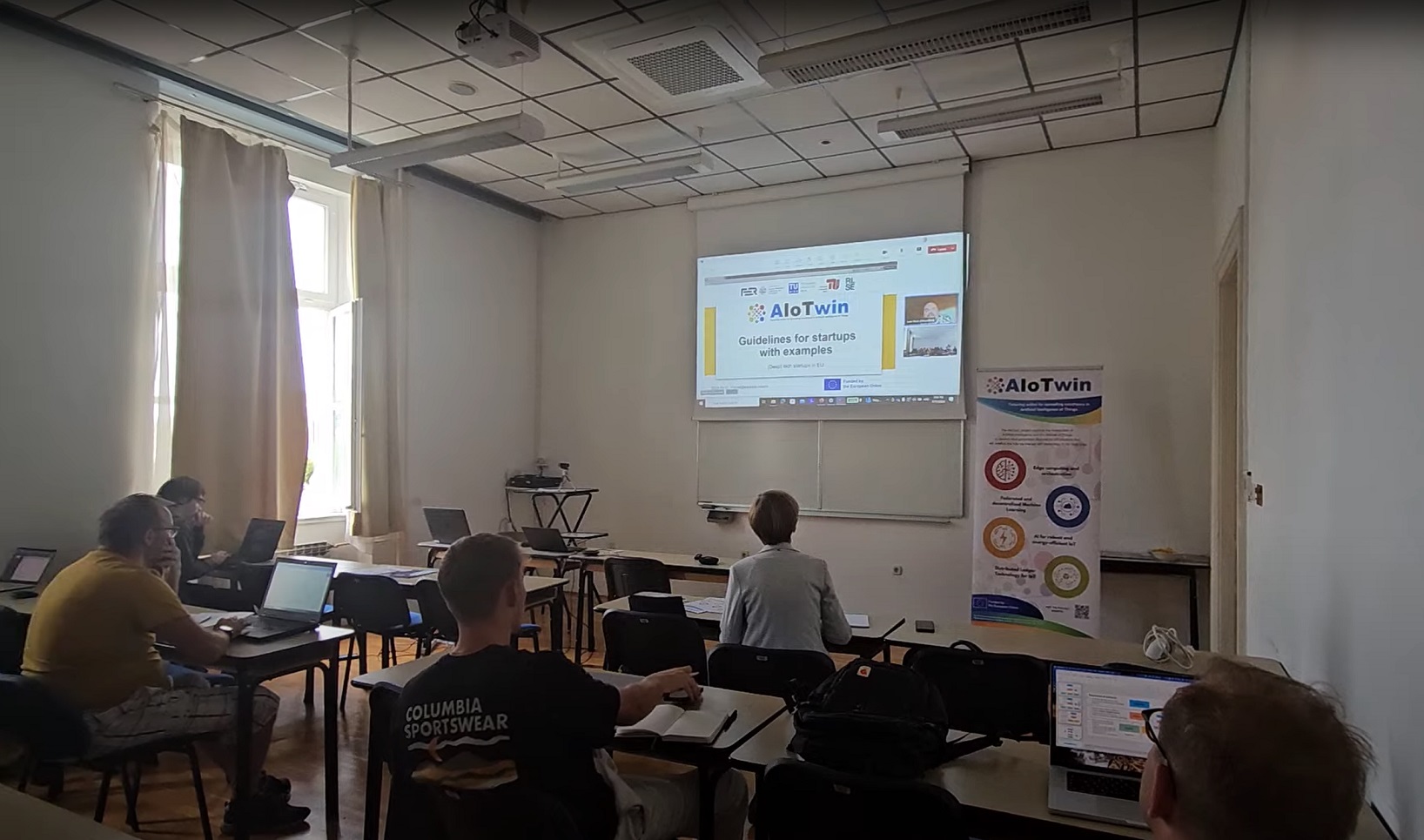Sarunas Girdzijauskas - Doctoral education at KTH
This presentation offers a comprehensive overview of doctoral education at KTH. It begins with a brief history and general information about KTH, followed by an outline of doctoral degree objectives in Sweden. Key topics include the Individual Study Plan (ISP), and course requirements, with emphasis on mandatory general skills courses. The thesis process and defense protocol, including the roles of the opponent and PhD committee, are also covered. Additionally, the talk addresses the Student-Supervisor Expectation Form and KTH’s Quality Management System, ensuring academic quality and guidance.
Boris Sedlak - Operating distributed computing continuum systems through active inference
Distributed computing continuum systems combine various computational layers into one cohesive platform. Thus, clients can benefit both from low-latency computations, i.e., from Edge devices, as well as highly available and virtually unlimited resources, i.e., from the Cloud. Nevertheless, as components become more distributed over a computing architecture, enforcing requirements (e.g., low latency or energy consumption) becomes equally challenging. To that extent, we propose causal mechanisms that identify how computing services can ensure their internal requirements, as well as how they impact other components through their actions. We empirically train these probabilistic models through a neuroscience framework -- Active Inference -- that promises quick convergence and verifiable behavior.
Lodovico Giaretta - Privacy-preserving computation techniques for edge AI
In this tutorial, we look at the different ways in which private training data can be leaked from edge devices that are collaboratively building an AI model, either during distributed training (e.g. Federated Learning) or during inference. We then review four techniques that can be deployed to prevent these data leaks: secure multi-party computation, fully-homomorphic encryption, trusted execution environments, and differential privacy. We look at how these different techniques, each developed for a separate, non-AI use-case, can be employed to secure distributed learning at the edge, and we evaluate their pros and cons.
Anh Le Tuan, Xuanchi Guo - In-Network Programming
This short tutorial on the data plane programming language P4 begins with an introduction to the core concepts of Software-Defined Networking (SDN), emphasizing how P4 was designed to improve the flexibility of data plane programming for SDN. The tutorial highlights P4's three main properties, shows example architectures and targets, and provides an overview of P4's programmable pipeline using the V1 model.
The speaker also discusses several state-of-the-art research works related to P4. Basic P4 concepts such as primitive types, header formats, parsers, match-action tables, P4 controls, and deparsers are introduced, each accompanied by an example.
The session concludes with a hands-on coding exercise where participants implement layer 3 destination-based IPv4 forwarding using P4, followed by an exercise showcasing P4's computing functionality. These tasks are conducted in a Mininet environment using Docker, allowing attendees to run experiments directly on their laptops.
Ivan Voras - Guidelines for startups with examples
This tutorial explores the essential steps and challenges of founding a startup. It begins by considering potential locations, while recognizing that Europe may be less startup-friendly than the US. The tutorial defines what a startup is, explaining its goals and outlining key phases: from the initial idea and proof of concept to the development of a Minimum Viable Product (MVP), followed by the beta version and Version 1.0. Financial aspects are discussed, with practical advice on how to find investors, while the significance of effective marketing strategies is highlighted.

